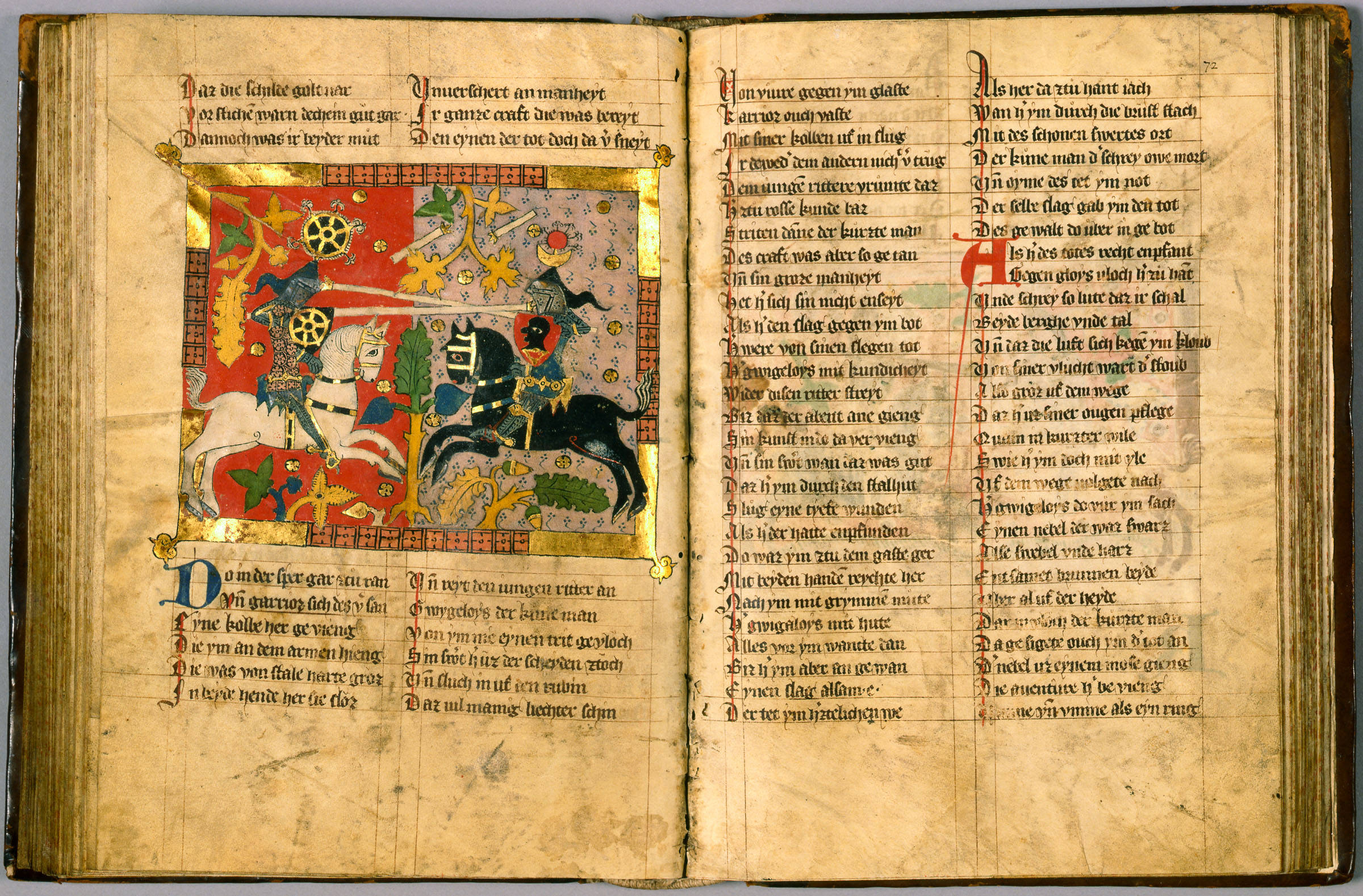Most English medieval fiction has been lost, research suggests
A study estimated the loss and survival of precious artefacts and narratives from different parts of Europe.

The Knights Of The Round Table might be known to many people across the world, but most medieval English heroic or chivalric stories have been lost, new research suggests.
Meanwhile, more than three-quarters of medieval stories in Icelandic and Irish have survived, in an unusual pattern indicating that the nature of islands may have helped preserve culture.
One possible reason for the loss of English stories more than others is that the language had little international significance at the time, rather than the dissolution of the monasteries under Henry VIII, as might have been thought.
Researchers, including experts from the University of Oxford, have estimated the loss and survival of precious artefacts and narratives from different parts of Europe.
They suggest that more than 90% of medieval manuscripts preserving chivalric and heroic narratives have been lost.
According to researchers, their approach offers a new perspective on the loss of cultural heritage.
Dr Daniel Sawyer, Fitzjames Research Fellow in Medieval English Literature at Merton College, Oxford, said: “We found notably low estimated survival rates for medieval fiction in English.
“We might blame the dissolution of the monasteries under Henry VIII, which did scatter many libraries.
“But heroic stories in English rarely appear in the library catalogues of monasteries and friaries in the first place.”
Today, English is learned as a second language all over the world but, during the Middle Ages, it had little international significance
He added: “Another possible explanation might be found in the limited prestige of the English language during this period.
“Today, English is learned as a second language all over the world but, during the Middle Ages, it had little international significance.
“After the Norman Conquest, in particular, French was important in England as an international language of power and culture, and the English crown owned parts of what is now France.
“In fact, if we add fiction written in Norman French in England to the evidence in English, the survival rate for English evidence looks more like the rates for other languages.
“This shows the importance of Norman French to English culture, and suggests heroic stories in Norman French and in English formed a connected tradition.”
The study revealed significant differences in survival rates for medieval (between 1066 and 1485 in England) works and manuscripts in different languages.
We estimate that more than 90% of medieval manuscripts preserving chivalric and heroic narratives have been lost
It suggests that Irish medieval narrative fiction is best preserved, while works in English suffered the most severe losses.
The team calculated that around 81% of medieval Irish romances and adventure tales survive today, compared to 38% of similar works in English.
Similarly, the results suggest that around 19% of medieval Irish manuscript books survive, compared to 7% of English examples.
The similarities between Iceland and Ireland may be due to lasting traditions of copying literary texts by hand, the experts suggest.
Dr Katarzyna Anna Kapitan, an Old Norse philologist and junior research fellow at Linacre College, Oxford, said: “By using statistical methods borrowed from ecology, we were able to add to previous scholarship.
“We estimate that more than 90% of medieval manuscripts preserving chivalric and heroic narratives have been lost.
“This corresponds roughly to the scale of loss that book historians had estimated using different approaches.
“Moreover, we were able to estimate that some 32% of chivalric and heroic works from the Middle Ages have been lost over the centuries.”
The researchers modelled the loss of narratives from medieval Europe, such as romances about King Arthur, or heroic legends about Sigurd the dragon slayer or the ruler Ragnar Lothbrok.
According to the study, their estimates of loss and survival matched with the scant historical evidence.
The findings are published in the journal Science, with Mike Kestemont, from the University of Antwerp, and Folgert Karsdorp, from KNAW Meertens Institute, the main authors.
Bookmark popover
Removed from bookmarks